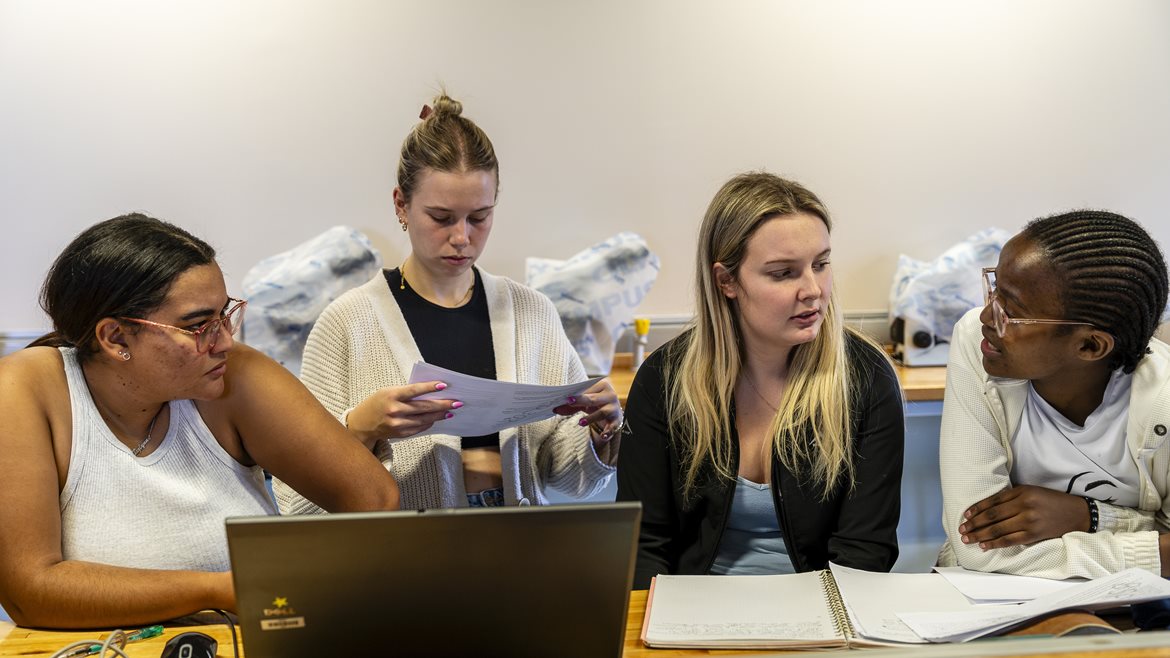1) STUDY TECHNIQUES
It’s important to realise that people don’t learn in the same way, so don’t worry about what your friends are doing. Over time you’ll find techniques and strategies that work for you. The SQ4R study technique, which stands for Survey, Question, Read, Record, Recite and Review, is one example; other methods include mnemonics and mind mapping. There isn’t a magic formula – studying anything takes hard work and dedication. Additional resources can also be found on the Department of Basic Education’s website.
2) HAVE A GAME PLAN
You should start revision at least three to six weeks before your exams begin, so create a timetable and be realistic with your schedule. Stick to the plan and you’ll manage your time, be able to track your progress and feel more confident when you get closer to the actual exam dates.
-
Make sure you know the date and time of each exam, so you give yourself enough time for each subject.
-
Prioritise the subjects that you find the hardest or the ones with the most work.
-
Set goals that you work towards each day.
-
Keep sessions short but make them effective.
-
Make sure all your notes are up to date and that you have all your study material.
-
Study when you are most alert.
-
Schedule regular breaks during the day and try going for walks to get fresh air.
-
Put your plan somewhere that you and your family will see it.
3) WHERE YOU STUDY IS IMPORTANT
You need to concentrate while you study, which means you’ll need to find somewhere as quiet, organised and comfortable as possible.
-
Sit at an uncluttered table or desk
-
Don’t study in your pyjamas while lying on your bed – it’s too tempting to take a nap!
-
Avoid distractions by turning off the TV, radio and your phone
-
Ask your family members not to bother you while you are studying
4) USE PAST FINAL EXAM PAPERS
An important part of your preparation is working through as many past final exam papers as you can. These give you an idea of the types of questions that may be asked and help you figure out what you do and don’t know. You can download previous exam papers from the Basic Education website.
5) THE DAY BEFORE THE EXAM
You’re nearly there! Don’t try to cram things in at the last-minute as you’ll start confusing yourself and add to your feelings of anxiety.
-
Make sure you know the exam venue and the time it starts
-
Ensure that you have all the correct documents you need (ID book, exam number, etc.)
-
Pack all the equipment you need and check that everything works (calculator, pens, ruler, watch, etc.)
-
Finish your revision early enough so that you can do something different to take your mind off your exam
-
Set your alarm clock and ask a friend or parent to be your back-up, in case you oversleep
-
Avoid all-night cramming and make sure you get enough sleep
6) ON EXAM DAY
You’ve worked hard and you’re prepared for today. Take a deep breath and try to relax – it’s just another exam and you’re going to be fine.
-
Wake up early so you don’t feel rushed
-
Have a bath or shower to refresh yourself
-
Eat a leisurely, nutritious meal (including some form of protein) and drink plenty of water
-
Don’t scan through your notes and summaries if this is going to cause you to panic
-
Get to the exam venue at least 40 minutes before the exam starts, so you feel calm and not rushed
-
Go to the toilet before the exam starts, so you don’t waste valuable time during the exam
-
Don’t talk to people who are discussing possible questions, etc.
-
Use the time to relax and compose yourself before you go into the venue
For additional information, our counselling unit, Emthonjeni Student Wellness, has a wide range of brochures that can be easily downloaded with information about improving concentration, improving your memory, learning to relax, managing your time and succeeding in tests and exams.
Good luck for your final exams – you’ve got this! We hope to see you at Nelson Mandela University in 2024. Start your journey with us and change the world.
